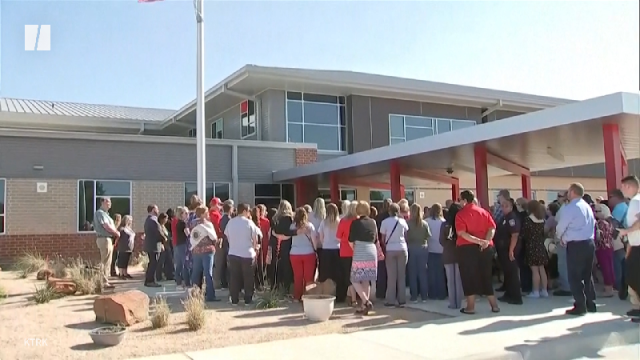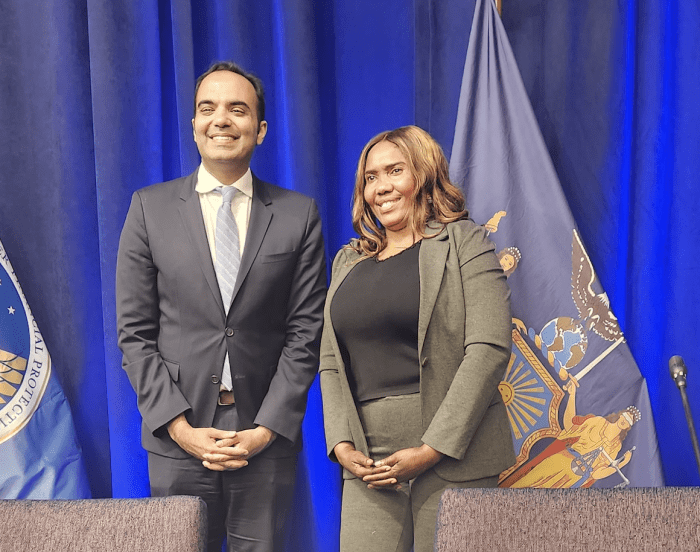The Hill
Clarence Thomas’s problems multiply at Supreme Court
Al Weaver – May 5, 2023
Supreme Court Justice Clarence Thomas is facing a fresh round of scrutiny after the third blockbuster report in less than a month links him financially to GOP megadonor Harlan Crow.
ProPublica reported Thursday that Crow, a Dallas-based real estate developer, paid thousands of dollars in tuition to a private boarding school for Thomas’s great-nephew, whom Thomas has said he raised “as a son.”
Federal ethics laws require the justices to report gifts given to a “dependent child,” but that term is defined to only include the justices’ children or stepchildren. Thomas’s allies have insisted the payment doesn’t violate the disclosure law since it was for Thomas’s sister’s grandson.
But the revelation has only added to the increasing pressure from Democrats for the justices to adopt a binding code of ethics.
“Today’s report continues a steady stream of revelations calling Justices’ ethics standards and practices into question. I hope that the Chief Justice understands that something must be done—the reputation and credibility of the Court is at stake,” Senate Judiciary Committee Chair Dick Durbin (D-Ill.) said in a statement.
When asked during a SiriusXM interview about impeaching Thomas, however, Durbin said “no.” He noted that only one justice, Samuel Chase, had been impeached previously, and Chase was acquitted in the Senate in 1805.
“I don’t think an impeachment is in the works, particularly with the House in a political situation that it’s in today,” Durbin said on “The Briefing with Steve Scully.”
Sen. Richard Blumenthal (D-Conn.), a Judiciary Committee member, argued the matter should be referred to the Department of Justice.
“There’s a potential criminal violation in the misreporting or failure to report certain benefits, gifts and financial transactions. There’s just a drip, drip, drip of additional information that is gravely undermining the Court, but also creating the need for a full factual investigation,” Blumenthal said.
“If [the Justice Department] fails to do so, Congress definitely has a role,” he added.
Thomas did not return a request for comment through a court spokesperson.
Later on Thursday, The Washington Post reported that Leonard Leo, a conservative judicial activist who played a key role in the Supreme Court’s rightward shift, directed tens of thousands of dollars be paid to Thomas’s wife, Ginni, roughly a decade ago.
Leo requested that she not be named in the paperwork, according to the Post. Ginni Thomas, a conservative activist herself, has long insisted that she doesn’t talk about the court’s business with her husband.
Judiciary Committee Democrats have been hamstrung on taking action regarding the court, including on a potential subpoena for Chief Justice John Roberts. He declined an invitation from Durbin to appear at a Tuesday hearing on Supreme Court ethics, noting that it is “exceedingly rare” for a chief justice to give testimony.
That could change if Sen. Dianne Feinstein (D-Calif.), who has been absent for months due to shingles, returns and once again gives Democrats an 11-10 majority on the panel — though even then subpoenaing the chief justice of the Supreme Court would be an extraordinary step.
Thursday’s ProPublica report was the latest financial transaction involving Thomas and Crow to come to light. The investigative outlet last month reported Thomas had accepted luxury trips from Crow, including flying on his private jet, without disclosing the travels.
ProPublica also reported Crow had purchased real estate from Thomas’s mother that Thomas had an interest in.
“The definition of insanity is seeing the same Supreme Court justice violate ethics rules over and over again and expecting him to actually hold himself accountable,” Sarah Lipton-Lubet, president of Take Back the Court Action Fund, said in a statement. “How many more examples of Thomas flouting disclosure rules do our elected leaders need to see before they intervene? Thomas needs to answer for his misconduct. It’s time to subpoena him.”
Republicans, on the other hand, indicated little willingness to wade into the waters related to the justice who has served on the court for 32 years. They say this is an issue for the Supreme Court to deal with and not something that requires congressional oversight. Interfering, they argue, would go against the separation of powers.
“The Supreme Court … writes its own rules and if there is any policing of those rules to be done, I think it ought to be done by them,” Sen. John Thune (S.D.), the No. 2 Senate Republican, told reporters. “I assume the members of the Court, who I have a high level of confidence in, will make the right decisions for the justices on the Court and for the people who work at the Supreme Court in the same way as we make the rules for all members of Congress.”
Sen. Mitt Romney (R-Utah), who recently indicated that he was dismayed by reports of the ethical issues for Thomas, said the Court needs to make ethics changes.
“These revelations with regards to a number of justices, both those appointed by Republicans and by Democrats, suggest that the Court itself needs to evaluate what their disclosure rules are and ethics rules are and methods for enforcing those,” Romney said. “I presume that the chief justice will undertake that.”
Republicans have further portrayed the Thomas scrutiny as a double standard, taking aim at the ethics of the high court’s liberal justices.
They note that liberal Justice Ruth Bader Ginsburg accepted an award in 2010 from the Woman’s National Democratic Club.
They have also pointed to liberal Justice Sonia Sotomayor not recusing herself when the court considered taking up two cases involving book publisher Penguin Random House, despite disclosing payments from the conglomerate for her books. Conservative Justice Neil Gorsuch, who also received payments from the publisher for his book, similarly did not recuse.








